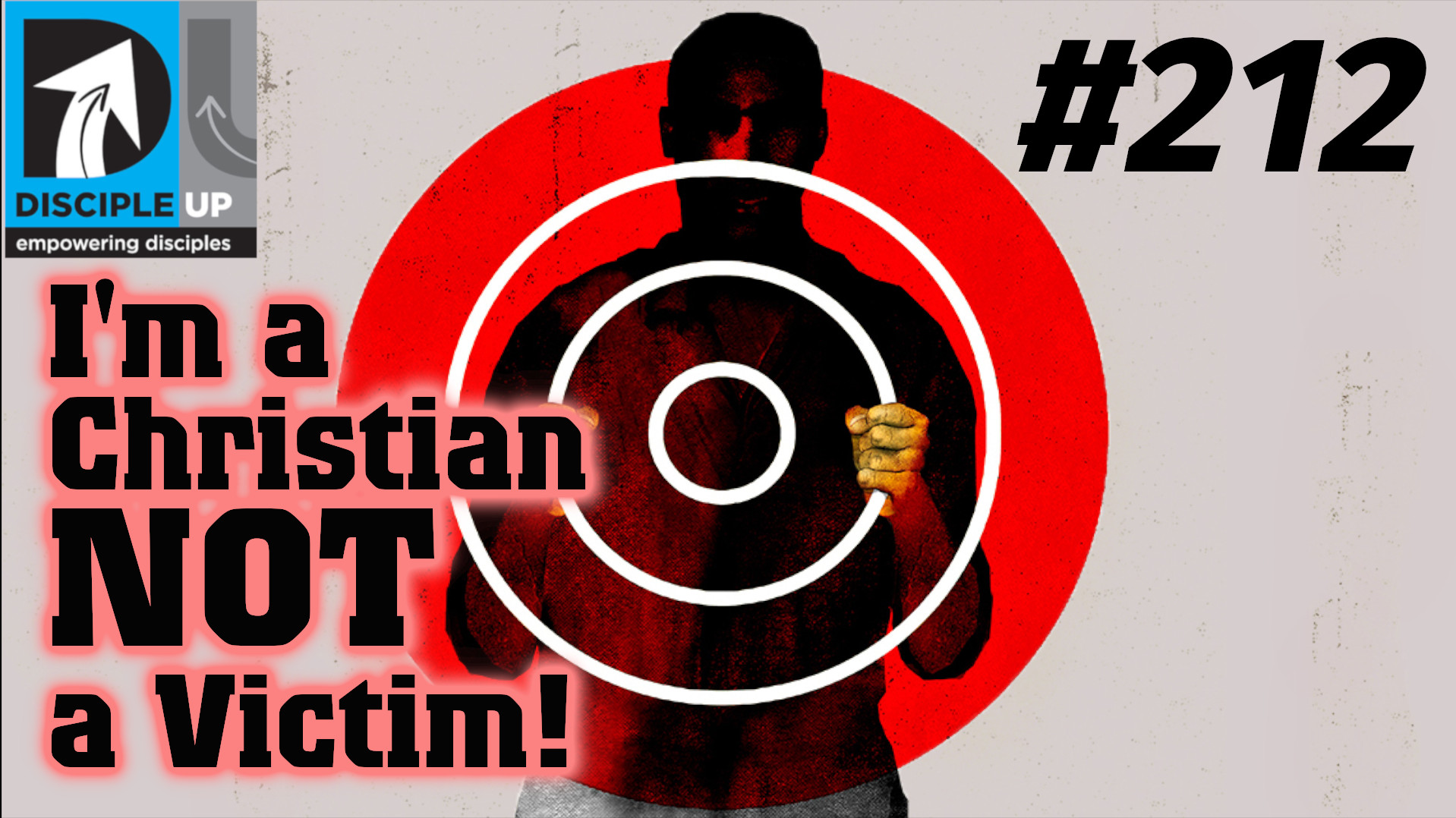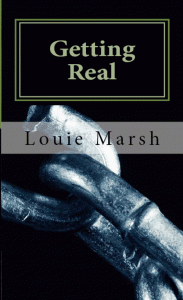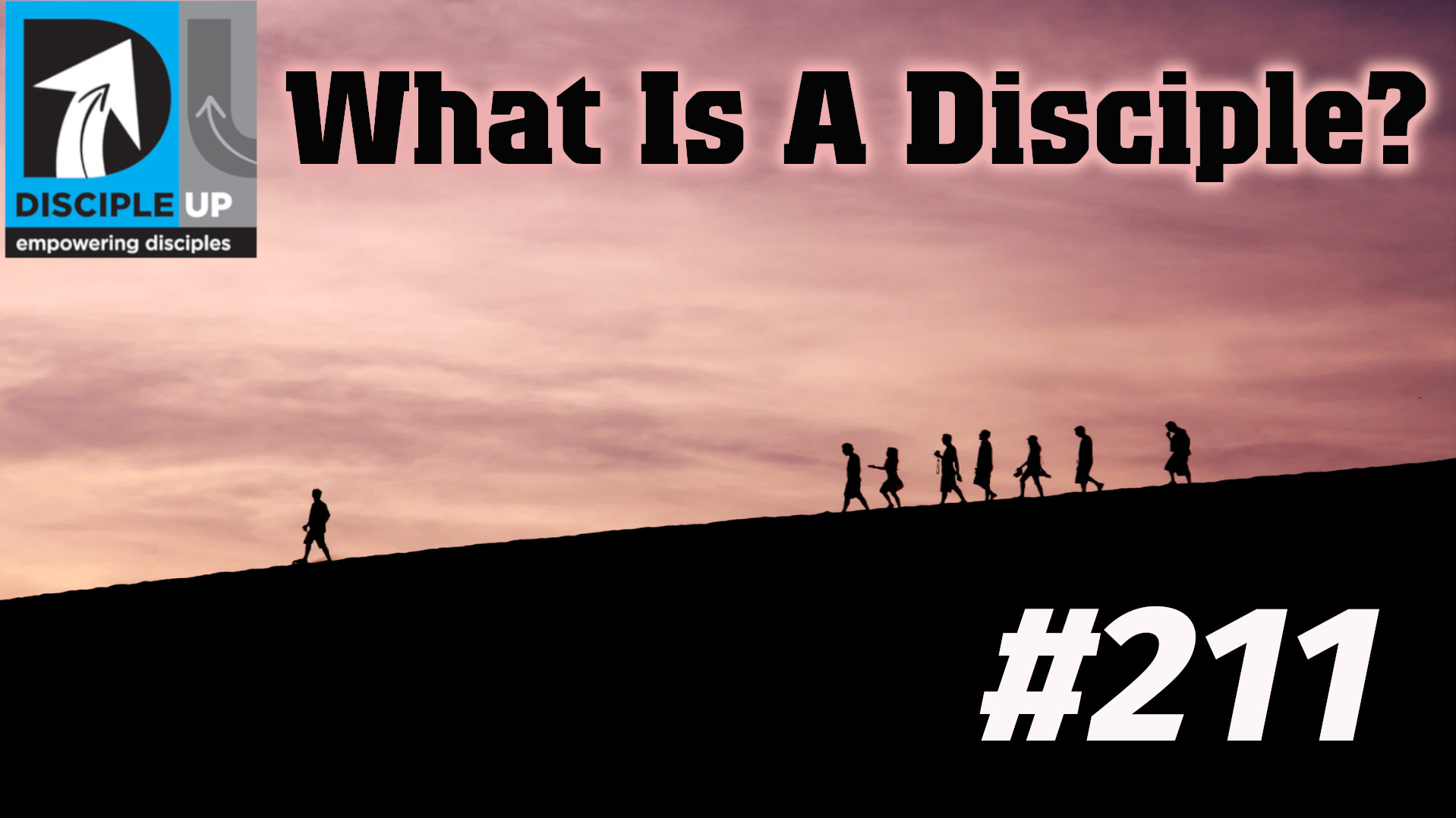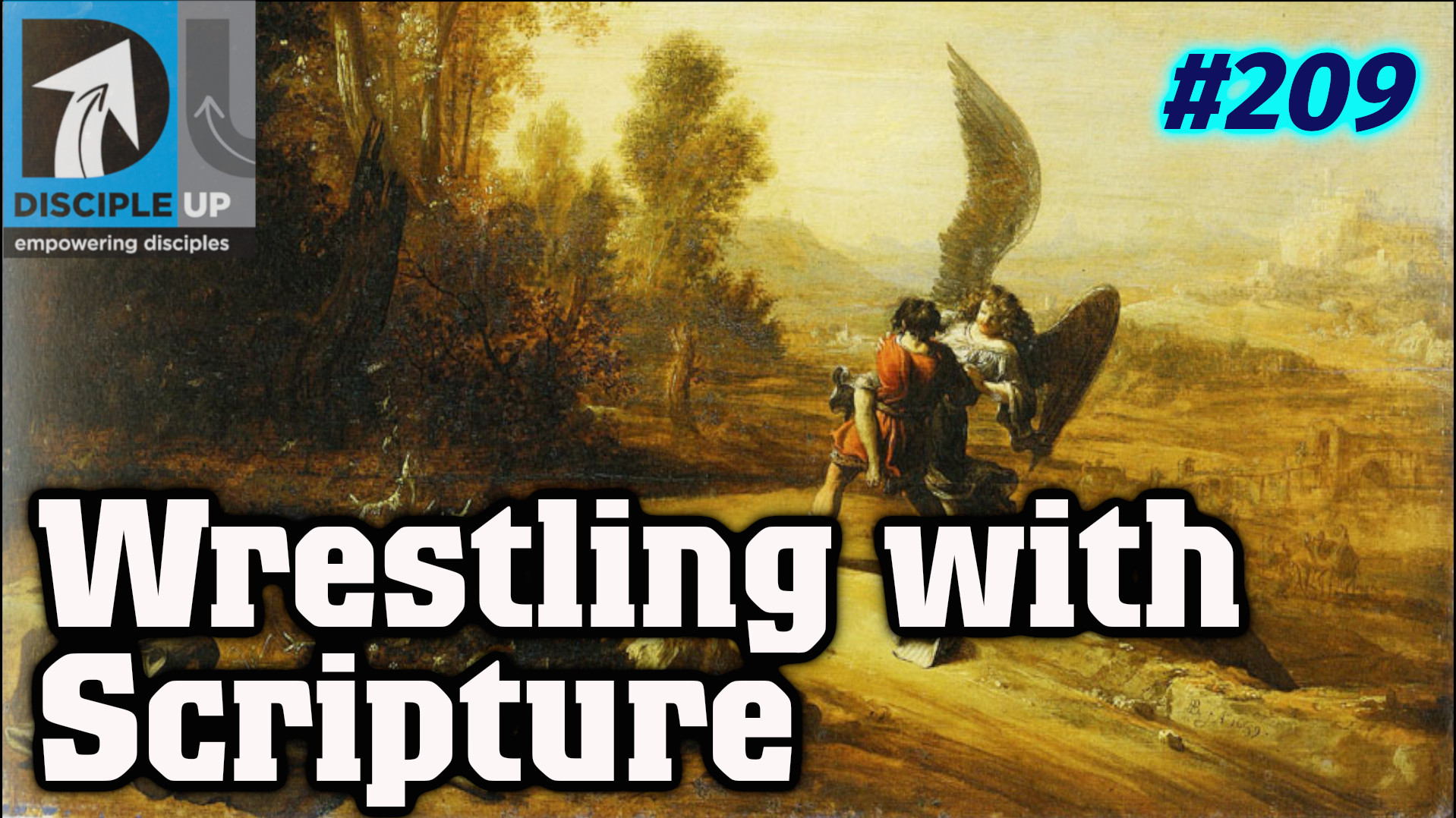Disciple Up # 212
I’m a Christian NOT a Victim!
By Louie Marsh, 5-26-2021
Intro. Picking up where yesterday’s sermon ends, the URL for it is below.
I’m going to do some recapping of the early parts and then get into the main point here.
1) Do I REALLY WANT to get well?
5 One who was there had been an invalid for thirty-eight years. 6 When Jesus saw him lying there and learned that he had been in this condition for a long time, he asked him, “Do you want to get well?” John 5:5-6 (NIV)
This may be the most profound question in the entire Bible. If it’s not then it’s certainly one of the most important and profound.
It seems like such a silly question to ask. Surely a man who had been disabled for that many years would love to be healed.
But the truth is, that many of us grow so accustomed to being sick or needy and the attention that it brings them that I’m not really sure that they want things to be any different.
Christ’s question to all of us this morning is “Do you want to get well?”
Some of us here today face serious physical illness. But many of us are not physically ill but have allowed other things to ruin our lives. Whether that’s alcohol abuse, drug abuse, sexual sin, pornography, greed, people pleasing, fear, etc. We all have to answer this question – Do I really want to get well, or have I become comfortable in my dysfunction and sin?
I have to move beyond just wanting the pain and discomfort to end. What Jesus wants to know is do I want to be well? Do I want to start down the road to becoming like Christ, the real road to recovery.
Is THAT what I want? Or do I just want a little relief from my pain?
2) SOME SIGNS I’M NOT SERIOUS ABOUT GETTING WELL.
- I practice BLAME SHIFTING
7 The sick man answered him, “Sir, I have no one to put me into the pool when the water is stirred up, and while I am going another steps down before me.” John 5:7 (ESV)
12 The man said, “The woman whom you gave to be with me, she gave me fruit of the tree, and I ate.” 13 Then the LORD God said to the woman, “What is this that you have done?” The woman said, “The serpent deceived me, and I ate.” Genesis 3:12-13 (ESV)
- I make EXCUSES.
-
- I have NO TALENT OR ABILITY.
But Moses pleaded with the LORD, “O Lord, I’m just not a good speaker. I never have been, and I’m not now, even after you have spoken to me. I’m clumsy with words.” Exodus 4:10 (NLT)
-
- It’s TO HARD/DON’T KNOW HOW.
6 Then I said, “Ah, Lord GOD! Behold, I do not know how to speak, for I am only a youth.” Jeremiah 1:6 (ESV)
-
- I’m too BUSY.
21 Another of the disciples said to him, “Lord, let me first go and bury my father.” Matthew 8:21 (ESV)
- I use the GOD DODGE.
12 And the angel of the LORD appeared to him and said to him, “The LORD is with you, O mighty man of valor.” 13 And Gideon said to him, “Please, sir, if the LORD is with us, why then has all this happened to us? And where are all his wonderful deeds that our fathers recounted to us, saying, ‘Did not the LORD bring us up from Egypt?’ But now the LORD has forsaken us and given us into the hand of Midian.” Judges 6:12-13 (ESV)
- I play the VICTIM (FEEL SORRY FOR MYSELF.)
2 And he prayed to the LORD and said, “O LORD, is not this what I said when I was yet in my country? That is why I made haste to flee to Tarshish; for I knew that you are a gracious God and merciful, slow to anger and abounding in steadfast love, and relenting from disaster. 3 Therefore now, O LORD, please take my life from me, for it is better for me to die than to live.” Jonah 4:2-3 (ESV)
Thinking Biblically about suffering, rejection and all kinds of pain will require a major shift in our perspective.
“38So in the present case I tell you, keep away from these men and let them alone, for if this plan or this undertaking is of man, it will fail; 39but if it is of God, you will not be able to overthrow them. You might even be found opposing God!” So they took his advice, 40and when they had called in the apostles, they beat them and charged them not to speak in the name of Jesus, and let them go. 41Then they left the presence of the council, rejoicing that they were counted worthy to suffer dishonor for the name. 42And every day, in the temple and from house to house, they did not cease teaching and preaching that the Christ is Jesus.” (Acts 5:38–42, ESV)
“18For I consider that the sufferings of this present time are not worth comparing with the glory that is to be revealed to us. 19For the creation waits with eager longing for the revealing of the sons of God. 20For the creation was subjected to futility, not willingly, but because of him who subjected it, in hope 21that the creation itself will be set free from its bondage to corruption and obtain the freedom of the glory of the children of God. 22For we know that the whole creation has been groaning together in the pains of childbirth until now. 23And not only the creation, but we ourselves, who have the firstfruits of the Spirit, groan inwardly as we wait eagerly for adoption as sons, the redemption of our bodies. 24For in this hope we were saved. Now hope that is seen is not hope. For who hopes for what he sees? 25But if we hope for what we do not see, we wait for it with patience.” (Romans 8:18–25, ESV)
“7But we have this treasure in jars of clay, to show that the surpassing power belongs to God and not to us. 8We are afflicted in every way, but not crushed; perplexed, but not driven to despair; 9persecuted, but not forsaken; struck down, but not destroyed; 10always carrying in the body the death of Jesus, so that the life of Jesus may also be manifested in our bodies. 11For we who live are always being given over to death for Jesus’ sake, so that the life of Jesus also may be manifested in our mortal flesh. 12So death is at work in us, but life in you.
16So we do not lose heart. Though our outer self is wasting away, our inner self is being renewed day by day. 17For this light momentary affliction is preparing for us an eternal weight of glory beyond all comparison, 18as we look not to the things that are seen but to the things that are unseen. For the things that are seen are transient, but the things that are unseen are eternal.” (2 Corinthians 4:7–12, 16-18, ESV)
“21For to THIS you have been called, because Christ also SUFFERED for you, leaving you an example, so that you might FOLLOW IN HIS STEPS. 22He committed no sin, neither was deceit found in his mouth. 23When he was reviled, he did not revile in return; when he suffered, he did not threaten, but continued entrusting himself to him who judges justly. 24He himself bore our sins in his body on the tree, that we might die to sin and live to righteousness. By his wounds you have been healed. 25For you were straying like sheep, but have now returned to the Shepherd and Overseer of your souls.” (1 Peter 2:21–25, ESV)
“31What then shall we say to these things? If God is for us, who can be against us? 32He who did not spare his own Son but gave him up for us all, how will he not also with him graciously give us all things? 33Who shall bring any charge against God’s elect? It is God who justifies. 34Who is to condemn? Christ Jesus is the one who died—more than that, who was raised—who is at the right hand of God, who indeed is interceding for us. 35Who shall separate us from the love of Christ? Shall tribulation, or distress, or persecution, or famine, or nakedness, or danger, or sword? 36As it is written, “For your sake we are being killed all the day long; we are regarded as sheep to be slaughtered.” 37No, in all these things we are more than conquerors through him who loved us. 38For I am sure that neither death nor life, nor angels nor rulers, nor things present nor things to come, nor powers, 39nor height nor depth, nor anything else in all creation, will be able to separate us from the love of God in Christ Jesus our Lord.” (Romans 8:31–39, ESV)
Please Get In Touch!
Email – louie@discipleup.org

Check out the Disciple Up Facebook page:
My books –












